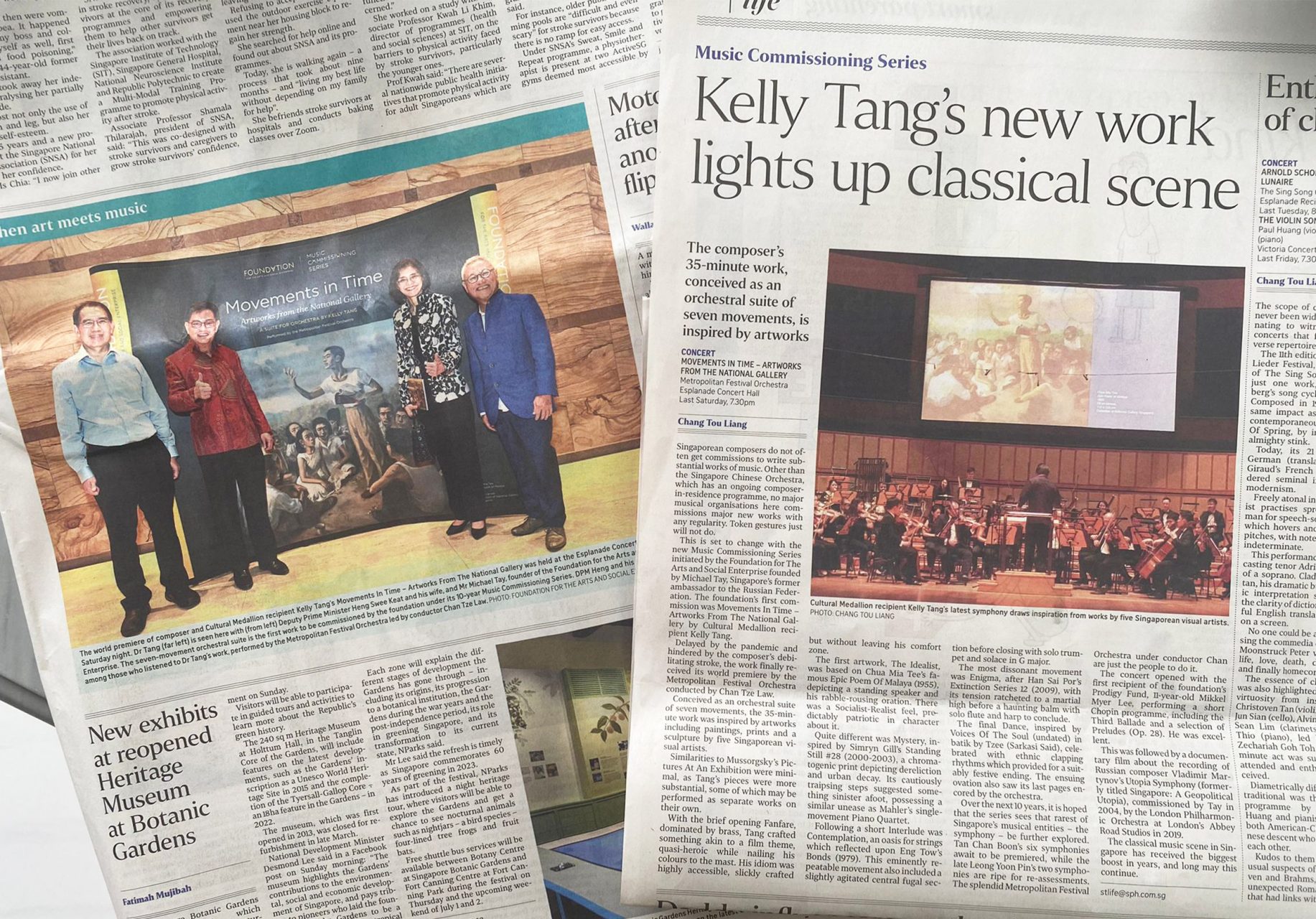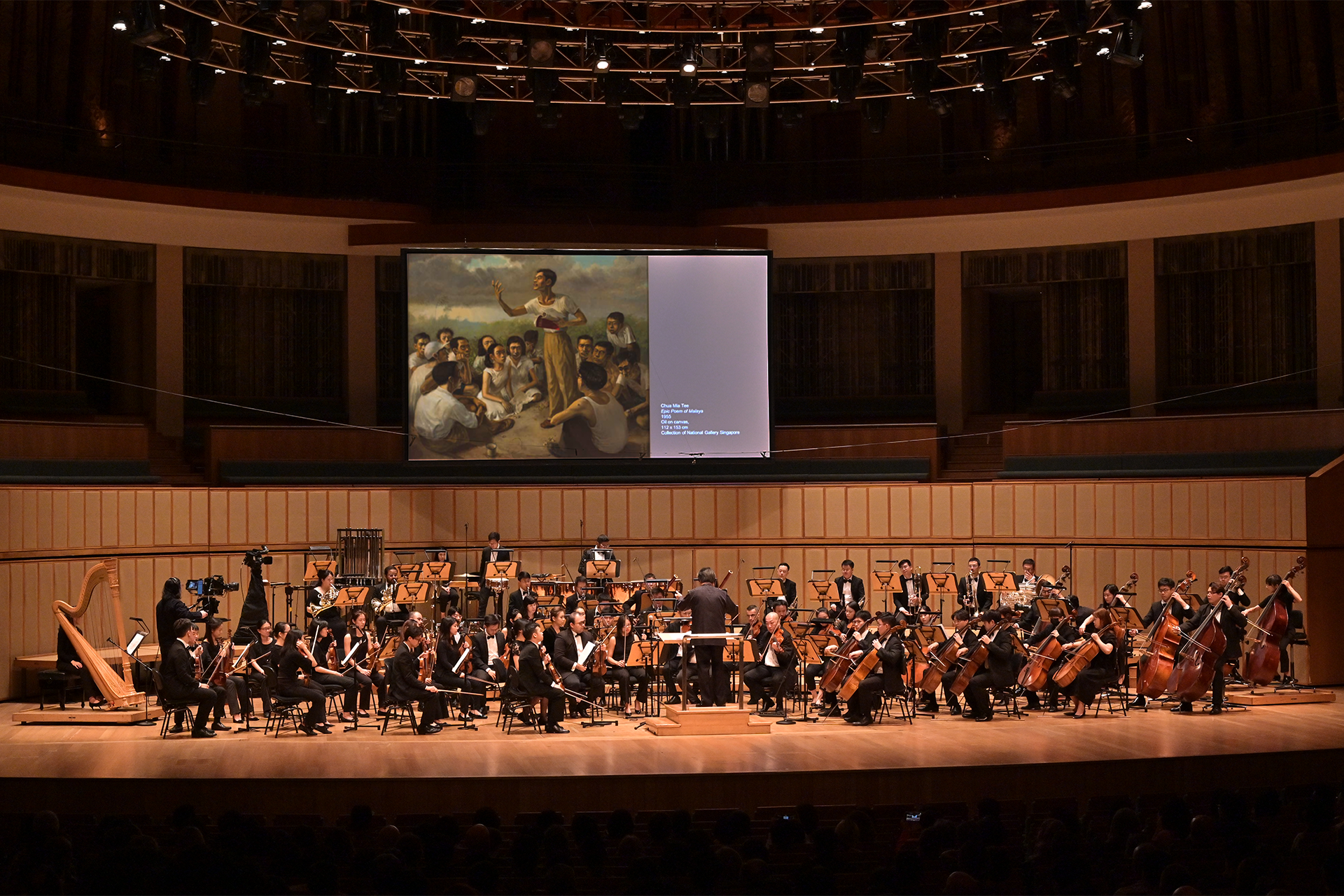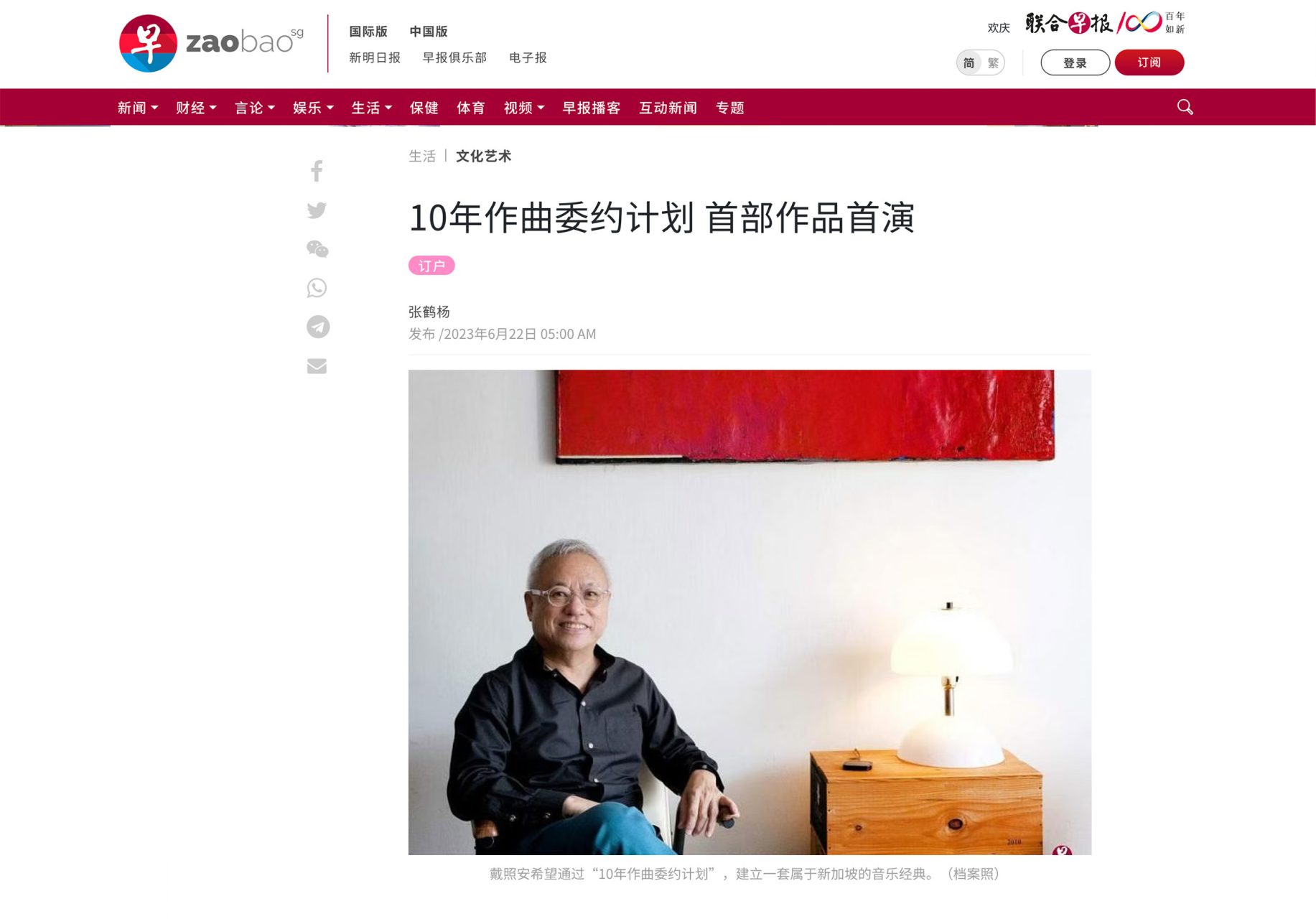Last month, renowned violinist Loh Jun Hong spoke with us about his experience as the soloist for the UTOPIA Symphony, his approach towards the arts and his idea of ‘utopia’. In Part One, he discusses his experience playing the UTOPIA Symphony with the London Philharmonic Orchestra.
Hey Jun Hong, thanks again for taking the time out of what I am sure must be a very busy schedule!
No, no, no worries! It’s good. Good to do.
I guess we can just chat first! Tell me a bit about yourself. I mean, based on what I’ve read, you’re a very accomplished and well decorated violinist.
I hope so! (Laughter)
I think about what you said about the UTOPIA Symphony – that your appreciation of it seemed to deepen when you could understand it beyond the music. It’s kind of coming across to me that this is something you value in art or music.
Of course, yeah, of course. I think learning more about Martynov and his experiences and what he wanted to say kind of deepened my understanding of the UTOPIA Symphony.
When I first heard the recording, I was a little bit lost. Because this is such a gigantic work – it’s 50 minutes long. And you begin by listening to the array of vocal parts and you’re kind of not sure what to expect and not sure where it’s going to go. At the start, it sounded to me like interruptions and interjections, all the voices coming in with different people saying different things.
But I think as we listen through the whole work, we start to find this bigger trajectory, and it really gives me a sense of wonder and resolution when you get to the ending, when all the harmonies start to come together. And it comes to this harmonious end, everyone saying the same thing, believing in this better world together, and harmonies and orchestra really uniting, it really feels like quite a… like in Chinese, like a 振奋人心 (moving, uplifting) moment, you know.
Right, right! (Laughter) It was really astounding to me, listening to UTOPIA for the first time, hearing how much it sounded like… the idea of ‘utopia’. It’s not like a narrative piece, it’s not like a musical. It doesn’t have a story.
Yeah.
But it still has an arc. And like you said, at the end, when finally, everything comes into harmony, it really is this incredible sense of like, is this what utopia is supposed to feel like? Or is this what striving towards utopia is supposed to feel like.
For me, I didn’t hear any of this interpretation from Martynov himself, so this is my own, but the way I see it is that when the vocal part starts getting more complex and it sounds like many different interjections – I actually kind of see it as, you know, we have all these different political views and different people trying to prove their point and trying to debate. And it’s only later on that everyone comes to a certain consensus, that we actually find ‘utopia’. That’s what I felt when I played it.
What was also interesting was — when you watch the choir perform those vocal parts, the repetitions that sound like interjections — a specific section of the choir would do each part. And the interjections would come from different groups. So visually, it looks like this comes from the center, then from the right, left, and again from the center.
Oh that – that is fascinating.
So it’s like different speakers, you know – I don’t know if I’m imagining stuff, but it reminded me of three or four different political parties talking, insisting on their own way.
Right, right. That really is fascinating. Obviously, I’ve only heard the Symphony on Spotify, but it seems as though when you hear it live, there also is a physical, spatial element to the music.
For me, working with the choir and orchestra was an amazing experience. I heard the recording before I went there — in its’ ‘Singapore Symphony’ form. And actually hearing it performed with a live orchestra was super different from the CD. Not to mention that the quality of the orchestra and choir was astounding. I was very impressed with the choir, particularly because their diction, the pronunciation, was so effortlessly clear.
I really want to ask about your solo. You’ve played for several renowned orchestras and multiple world famous symphonies. And I’m very curious about how this experience stands up to the rest of them. I know on your podcast with “You Play a What” you mentioned that a key difference is that, basically, the UTOPIA Symphony is new. It’s a new work. So it’s almost like you have the chance to make your own imprint.
Yeah, I think it’s both exciting and yet it kind of makes me nervous also, because you kind of have no reference point, right, to actually base your interpretation on.
And I think that’s why meeting Martynov and talking about the piece actually helped me quite a bit. Usually for a standard rep, you would have a whole slew of interpretations. So you can kind of see what other people have thought about the piece, and you read up more about the composer as well and can try to add in some new stuff, but generally, the interpretation doesn’t veer off too much.
With new works, I’ve done one new work in New Zealand as well. You know, the book is completely open, you can tell whatever tale you want to and the conductor is also trying to find their way. So it’s quite interesting — a very, very different process.
What’s interesting is when working with older works, we kind of think that, oh, the composer’s intentions and his markings and his scores are like …
The last word.
Yeah, the last word, the “Lord’s word”. Exactly. But what we realized through working with live composers is that — you know, they are people too. And so when they come to the rehearsal, they have a certain conception of their work, but then when they hear you do something different, they’re like, oh, I never thought of that, and that’s actually a really, really good way of doing it.
Did that happen during the recording of the UTOPIA Symphony?
Of course. Yeah, yeah. Yeah.
Any anecdotes that you can share, and that you’re allowed to share?
(Laughter) So it was mostly with Jurowski, and the composer, Martynov. So what usually happened was – I found it really funny, because whenever Jurowski wanted to do a phrasing a certain way, like he would say “We want to have this crescendo to really burst forth from this section.”
But every time, Jurowski would then turn around and look at Martynov and politely ask, oh, I – I hope that’s okay with you. (Laughter)
It was really funny. Of course Martynov would then be like, yeah, that’s good. That’s good.
Part Two of this “UTOPIA Chronicles” with Jun Hong, the solo violinist in the UTOPIA Symphony.







